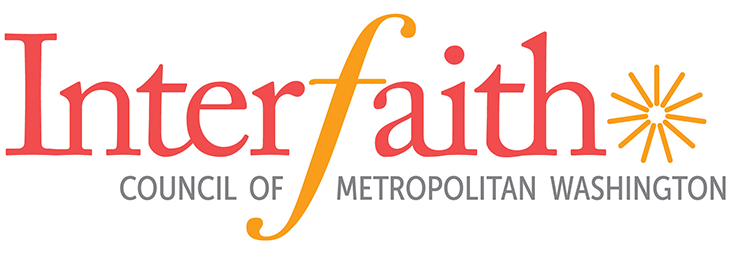Each generation has its moments of historical reckoning that we remember and will never forget. Think for a moment about the momentous events that defined your life. Where were you, and who were you, when the world changed? In the fall of 2001, we were college students, both studying abroad, optimistic after having made it through Y2K without disaster and riding the wave of dot-com boom idealism that made the world seem instantly accessible and limitless. But on Tuesday, September 11th, we watched in shock and disbelief as the towers fell, the smoke clouding our optimism with fear and uncertainty. The world suddenly seemed fractured.
For each of us though it was the demonization of Muslims, Jews, and immigrants and the wars that followed that squarely placed us on an interfaith journey following the Jewish tradition of “tikkun olam”, repair of the world, or what the late Rabbi Jonathan Sacks eloquently called “to heal a fractured world”. We weren’t alone. So many important, and now essential, civil rights and interfaith organizations responding to the same rise in hate crimes and unjust policies began in those early years of the new millennium.
It is frightening and heartbreaking that 20 years later Americans are reviving many of the same well-worn anti-Muslim comments and portrayals as we watch Afghanistan falling back into the hands of the Taliban. We are seeing the same tired stereotypes about refugees, Muslims, and women circulate on social media. Sometimes these are circulated by the same people who would limit voting rights and close our borders to everyone who isn’t white Christian. Other times they’re circulated by people without awareness of the impact. All this makes us wonder how effective all the interfaith, civil rights, and peacebuilding work over the past decades has been. Was it all for nothing?
For many Afghans, the return of Taliban rule is another fracturing, generation-defining moment. Unfortunately, the fracturing of the world is nothing new. It didn’t happen for the first time on 9/11 or this last week, and it will happen again. But we don’t need to wait for these generational events to create real change. The actions we all took over the past decades responding to rising hate crimes and demonization truly did have an impact. We can learn from it, and keep working. Here are some of the lessons we learned from the interfaith movement over the past two decades.
Foster community networks and structures that make personal connections possible. Many organizations in the months and years following 9/11 focused on interfaith dialogue and peacebuilding. They may have started with iftars, seders, and vigils but they soon discovered shared concerns for their communities working together to address everything from community drives for school supplies and food, addressing school bullying, unjust government surveillance, and policing, to now racism and vaccine outreach.
Invest in personal relationships across lines of difference. At first, there was a lot of effort to “get to know” Islam and Muslims, through interfaith iftars, mosque visits, and book studies. These efforts opened the door to understanding and did lead to increased openness and warm feelings, but they are not enough on their own. We need everyday relationships that go beyond openness towards shared empathy and shared action.
We ourselves met and became friends through interfaith networks in the DMV. We found community in these networks. We collaborate and share resources with each other, continually supporting each other’s work. We’re not seeing each other nearly as often these days but our text threads still light up with personal news, resources, questions, and most of all support.
Practice hope. The hidden truth of healing the world is that we must be able to see the fractures and wounds, including our own. We’ve learned in our interfaith journeys that we must draw close enough to each other to understand and confront the depth and nuances of our wounds, their causes, and the actions we can take to stop cycles of harm and oppression. We have discovered, as white middle-class women, that healing and liberation are bound up in confrontation, rejection, and healing from our communal narratives of power, money, security, and racism.
This process, painful and redemptive, is only possible in the community. This is practicing hope. Sharing dignity and healing in the pursuit of a repaired and the liberated world is to practice hope. It is to do whatever is in our power to bring that reality to life, whether it’s a supportive text to a friend, a shared meal, book studies, or lobbying congress.
We can accept the fracture as it is, fearing there is nothing we can do. Or, we can choose to seek truth and repair. Our religious and ethical traditions give us that wisdom. The work to bring communities and individuals together who would otherwise remain strangers has and is working. The work towards healing the world is happening. It’s true the world is still fractured. Yet, practicing hope and building diverse strong communities is the most urgent when all hope seems lost because it is then when we remember that we can carry each other. We owe it to each other. We owe it to the generations who came before us and the generations who come after.
Melody Fox Ahmed is the director of global programs and faculty in the religious studies department at the National Cathedral School. She oversees global education and engagement work including travel programs, research fellowships, and curricular and co-curricular initiatives. She is a member of the US-Pakistan Interreligious Consortium and the Sisterhood of Salaam Shalom. She received her B.A. from Vanderbilt University and her M.A. in Global, International, and Comparative History from Georgetown University.
